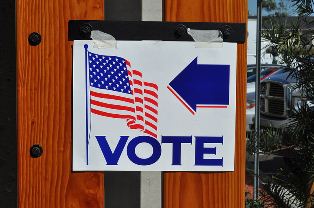 Native Nations' IDs are both evidence and exercise of sovereignty, and they should stand on their own as validators of tribal citizens' rights to vote in tribal, federal or state elections and to travel and return home unimpeded. This should be so for those Native Nations that issue passports to their citizens and those that issue other IDs.
Native Nations' IDs are both evidence and exercise of sovereignty, and they should stand on their own as validators of tribal citizens' rights to vote in tribal, federal or state elections and to travel and return home unimpeded. This should be so for those Native Nations that issue passports to their citizens and those that issue other IDs.
Whether Native people consider themselves as citizens solely of their Native Nations or as having dual citizenship, first in their Native Nations and then in the U.S., they should be on the same side as those who are opposed to overly stringent voter ID requirements by states.
The Republican-led state initiatives, however nicely self-described, will most likely keep from voting the non-white, elderly, young and poor, who tend to vote for the Democrats. Or, as Mike Turzai, the Pennsylvania House Majority Leader, infamously bragged in June about the Republican checklist: "Voter ID—which is going to allow Governor Romney to win the state of Pennsylvania—done!"
The Pennsylvania law requires voters to produce state-approved photo identification. This can impose a substantial if not complete burden on people who do not drive or who no longer have a driver's license; have changed residences and/or last names, but haven't updated their Social Security card or other IDs; have misplaced or do not have a birth certificate; or who have identification from other states. What about the unlucky person who lost all required papers in a fire, burglary or flight from abuse, or who lacks the means to obtain the necessary backup documents?
How might that apply to Native people? For starters, there are a lot of Native people in Pennsylvania, even though the commonwealth did a thorough job (or nearly so) in getting rid of Native Nations. Many Native people in Pennsylvania and elsewhere were born at home and have delayed birth certificates (which often are challenged) or none at all. More than a few cannot locate papers because of domestic upheaval or dysfunction. If they don't drive and don't have non-driver's licenses, they may rely fully on tribal IDs.
Native Nations already have all needed documentation on file, some with family histories going back well before there was a United States or states or colonies. They have recorded birth, death, marriage, children, name change and other data to vouch for their citizens. Native Nations are the cognizant authority for their citizenry and states should afford them the respect and recognition they deserve. Would Native Nations be free of error, manipulation or corruption? No, but no state can answer affirmatively either.
If Pennsylvania or any other state does not expressly declare acceptance of tribal IDs for voting purposes, does that mean Native Nations' IDs are invalid identifiers for voting on November 6, 2012? Is that a test case any Native Nation wants during an election so heated that it threatens to set the country on fire? Is there even time to have a negotiation on the matter and in what state would that take place?
The matter should be settled law in Minnesota, as a result of a 2004 lawsuit upholding tribal IDs for state voting. However, on August 27 the Minnesota Supreme Court approved balloting on the general question of government-issued voter identification (meaning state government only), and statewide referenda on minority rights usually do well for the majority and not so well for minorities. A state judge upheld Pennsylvania's voter ID law on August 15, and the decision is on appeal to the commonwealth's Supreme Court.
Other voting rights cases are on separate, but equally fast tracks to the U.S. Supreme Court. Federal courts have stopped efforts that would impose burdens on people trying to vote in Texas and Ohio, on August 30 and 31, respectively, and the Texas Attorney General vows to appeal to the high court. As the 56-page decision in the Texas case describes the state plan: "[A]ny Texan who wishes to vote must file a registration application with the county elections registrar. That application must include the voter's name, date of birth and a sworn affirmation of U.S. citizenship." Native Nations' IDs do not carry the last item. Would they be rejected for that reason? Would an application be approved with a clarification for dual tribal and federal citizenship?
Native Nations have worked with Homeland Security for several years and many have developed IDs that conform to imprint and other safety standards and are accepted by the Transportation Security Administration and other federal agencies. Those Native Nations which have their own passports are still waiting for final agreement for their citizens to travel and return through the U.S. It is hoped that the numerous, complex cases do not place more barriers in the way of Native peoples' governmental authorities or rights to travel or vote.
Suzan Shown Harjo (Cheyenne & Hodulgee Muscogee), an award-winning columnist and a poet, writer, curator and policy advocate, who has helped Native Peoples to protect sacred places and recover more than 1 million acres of land, is president of The Morning Star Institute in Washington, D.C.
Read more: http://indiancountrytodaymedianetwork.com/ict_sbc/native-nations%e2%80%99-ids-and-voting-rights-cases http://indiancountrytodaymedianetwork.com/ict_sbc/native-nations%e2%80%99-ids-and-voting-rights-cases#ixzz25lDUVpuy
- Home
- News
- Opinion
- Entertainment
- Classified
- About Us
 MLK Breakfast
MLK Breakfast- Community
- Foundation
- Obituaries
- Donate
04-17-2024 5:44 pm • PDX and SEA Weather








